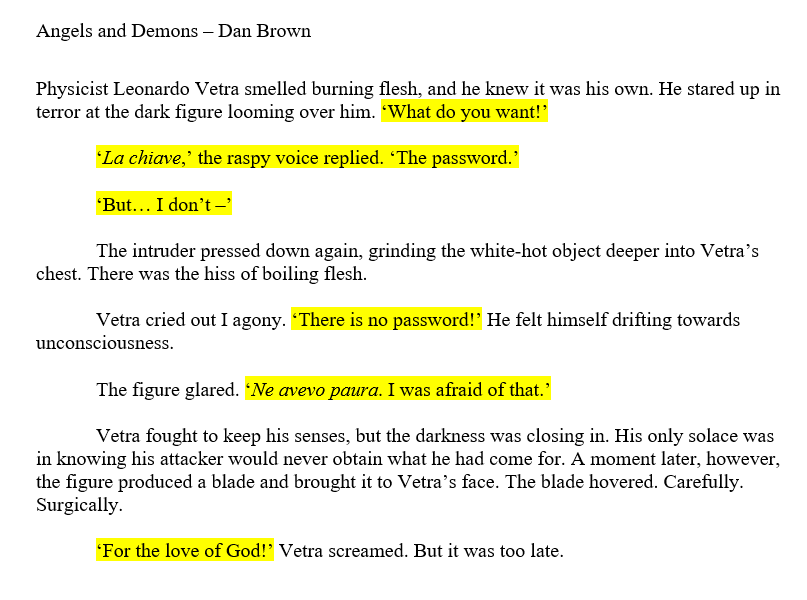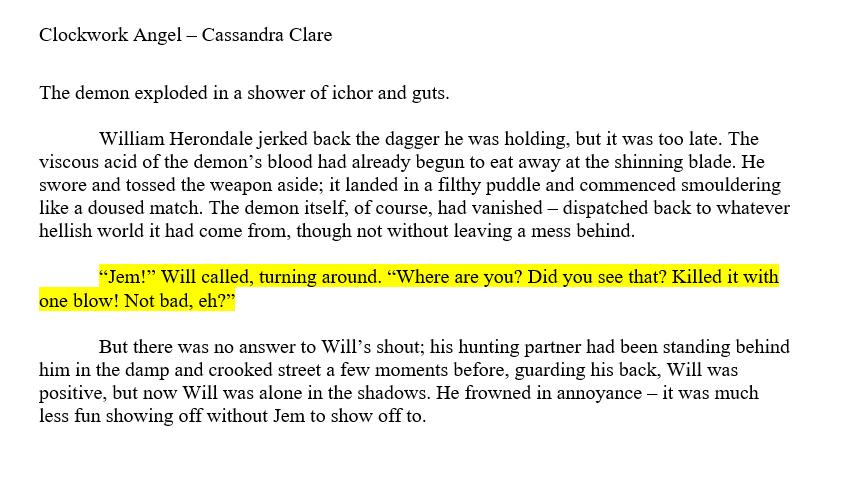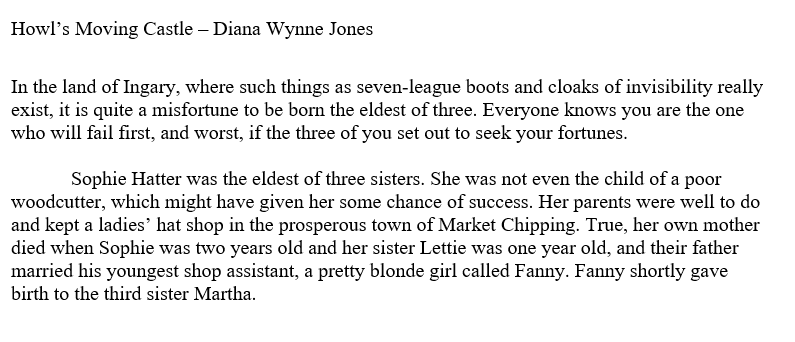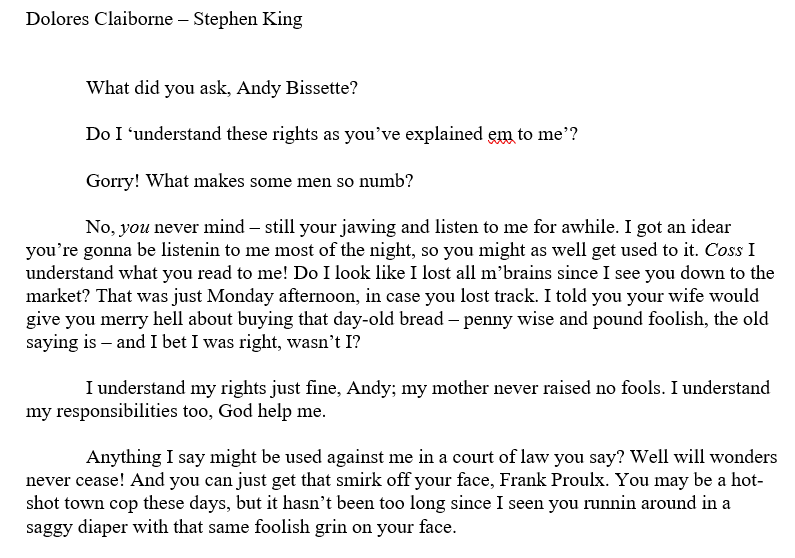Whether you’re writing a short story or a full novel, the first page of your book is your most important page. It is your first chance, besides your blurb, to hook your reader’s interest. You have got to make it count and you have to make it flow. In a few short lines you have to get your reader interested in your world or characters, ideally both, and you have to pose a problem and/or a question that is impossible to ignore. Obviously you can’t cater to everyone’s tastes, but that’s why there are so many different genres and stories to choose from. However, you do want to try and interest the readers who would usually enjoy reading the type of novel you have written.
I decided to take a look at some of the books on my bookshelf and looked at their first pages. I was surprised in some cases, I thought there would be more dialogue and action, but I realised that nearly every first page aims to achieve the exact same thing. Pose a question, or a series of questions and problems to intrigue the reader.
The first page in Cassandra Clare’s Clockwork Angel has action followed by dialogue, followed by a question. First William is fighting a demon, then he speaks, and then there is the question; where is his hunting partner?
Even as William is fighting the demon it sparks questions for the reader, who is William? and why are there demons? You can see clearly how Clare aims to draw the reader in with action, danger and questions.
Howl’s Moving Castle by Diana Wynne Jones is in stark contrast to Cassandra Clare’s Clockwork Angel. There’s no dialogue and no action, but even Jones asks questions through her prose. What is this land where seven-league boots and cloaks of invisibility exist? How do the people of these lands live?
Jones then adds humour to her questions by poking fun at traditional fairy tales. It sets up the story for Sophie Hatter and makes the reader wonder what misfortunes lie ahead for her.

Dan Brown takes a different approach with Angels and Demons as he launchers the reader right into the heart of disaster. He uses shock as a way to grab your attention with ‘Vetra smelled burning flesh’. An intruder has broken in and Leonardo Vetra’s life is in danger. Immediately you ask, who is the intruder? What do they want? and does Vetra survive this awful ordeal?
In Stephen King’s Dolores Claiborne, the first page is all speech as the main character talks to two officers. You learn pretty quickly that she is being questioned and that she must be relatively old. Which begs the questions; Why is she being questioned by the police? What happened?
In all the examples, the authors introduce some, or all of their main characters, and pose questions. Whether it’s done through tense action or drama, or with a humorous spin, or an eccentric character. Authors aim to pull you into their stories and worlds.
You will notice that there is very little descriptive prose about weather, what the characters look like, what they are wearing, or even the buildings around them (Hint – avoid being over descriptive). These details are not important and can be fed in when necessary later, so don’t get too hung up on the details. Focus on the scene, what is happening, who is talking, and what questions do you want the readers to ask?


